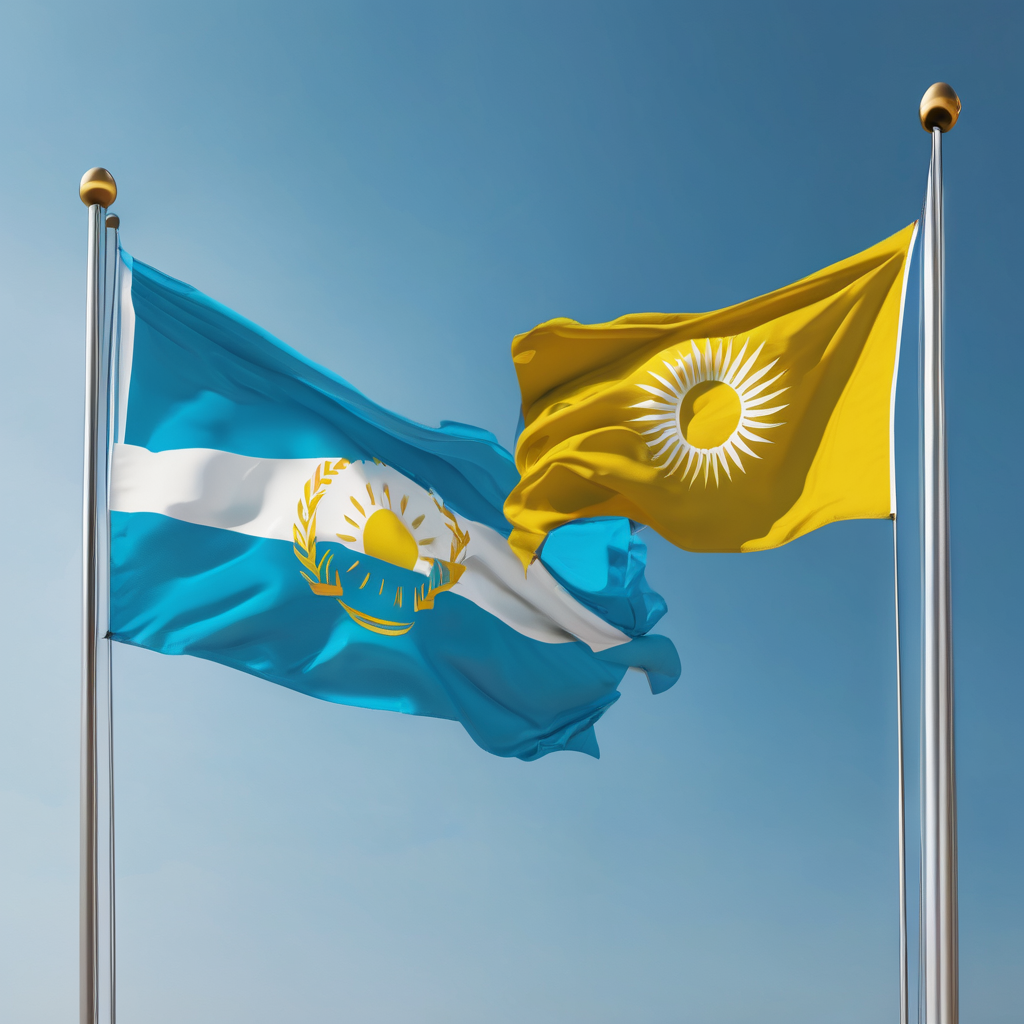U.S. President Donald Trump announced on Thursday that Kazakhstan is set to join the Abraham Accords, a significant move aimed at normalizing relations between Israel and several Muslim-majority countries. The decision followed discussions between Trump, Israeli Prime Minister Benjamin Netanyahu, and Kazakhstan’s President Kassym-Jomart Tokayev, highlighting ongoing U.S. efforts to foster diplomatic relationships in Central Asia.
In a post on Truth Social, Trump expressed optimism about the forthcoming formal Signing Ceremony, indicating that more nations are interested in joining this “club of STRENGTH.” Although Kazakhstan already has established diplomatic and economic relations with Israel, its formal entry into the accords is seen primarily as a symbolic gesture, reinforcing existing ties rather than creating new frameworks for cooperation.
The announcement coincided with a meeting at the White House attended by Trump and Tokayev along with leaders from other Central Asian nations. This engagement underscores America’s strategy to expand its influence in a region traditionally dominated by Russia and increasingly sought after by China.
U.S. special envoy Steve Witkoff mentioned plans to return to Washington for the announcement, which sources indicate hopes to rejuvenate the Abraham Accords amid ongoing tensions from the Gaza war. Trump has persistently advocated for the expansion of these accords, which began with the UAE and Bahrain in 2020, and later included Morocco. He remains optimistic about adding regional heavyweight Saudi Arabia to the list, contingent on progress regarding Palestinian statehood.
Insights from prior discussions suggest that other Central Asian nations like Azerbaijan and Uzbekistan could potentially follow Kazakhstan in joining the accords, underscoring a trend toward regional cooperation that includes Israel. However, the ongoing humanitarian crises in places like Gaza complicate these diplomatic endeavors, especially as countries look for pathways to peace amidst conflict.
Overall, the participation of Kazakhstan in the Abraham Accords marks a hopeful shift in Middle Eastern diplomacy, aiming to bridge divides between nations through dialogue and economic engagement. This development signals a broader commitment to fostering stability and cooperative relationships in a region characterized by instability, creating opportunities for lasting peace and mutual benefit.
